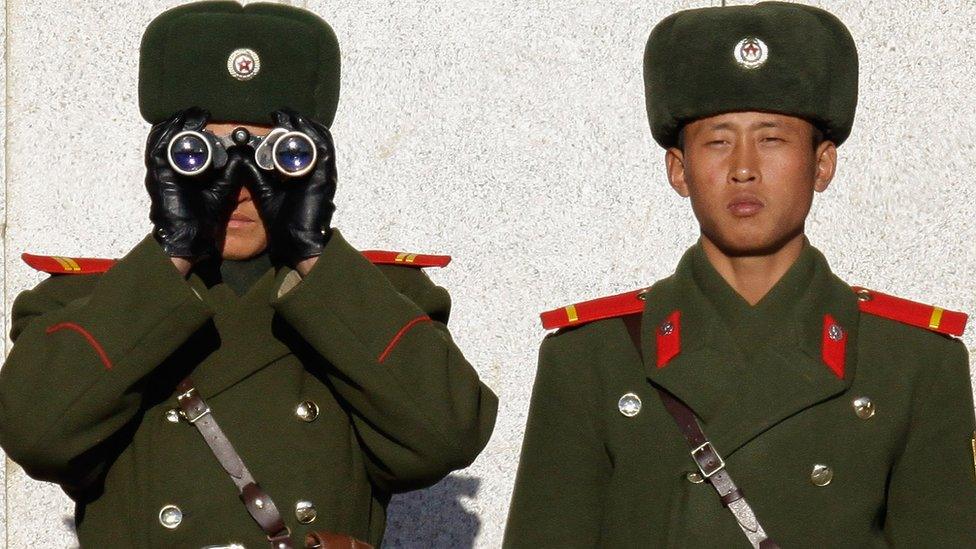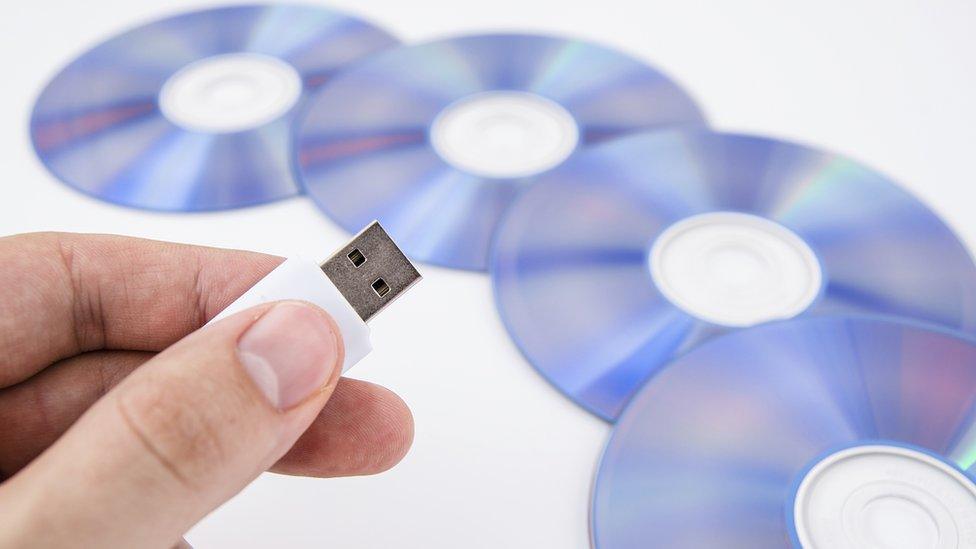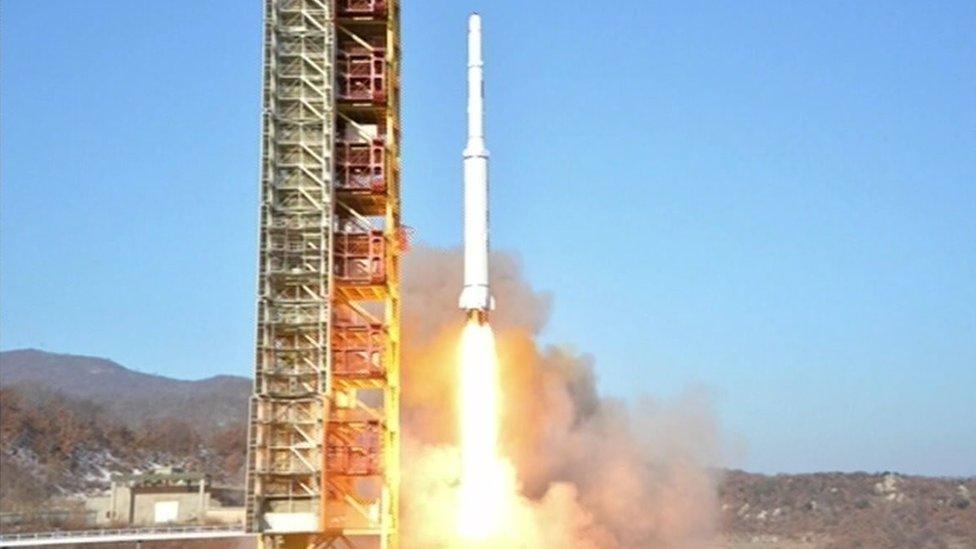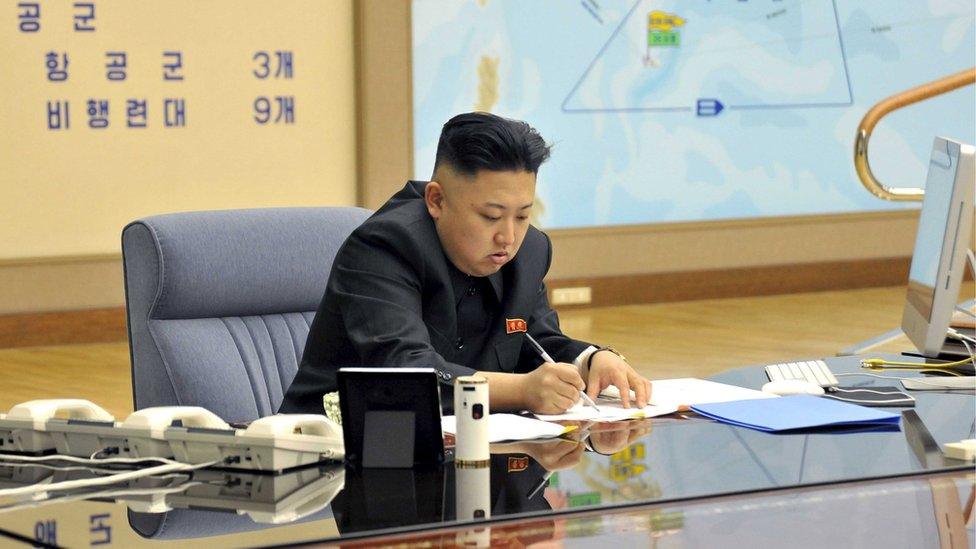North Korea campaigners seek USB sticks
- Published

Most North Koreans have little access to the outside world
Two US human rights charities have launched an appeal for donations of old USB sticks, also known as flash drives.
About 10,000 USB sticks are smuggled into North Korea each year by groups of people who have defected from the Communist state.
They are loaded with Hollywood films, South Korean TV shows and other material such as the Korean language version of Wikipedia.
In North Korea it is illegal content, and delivering it is dangerous.
In addition, the groups usually have to bear the cost of buying the flash drives themselves.
They often also have to fund bribes for North Korean officials when smuggling them in, and sometimes they are stopped by the South Korea authorities, who say the illicit activity increases tension between the two nations.
"After food and water, the next thing people in North Korea want is knowledge," said Alex Gladstein, chief strategy officer of the non-profit Human Rights Foundation.
Most North Korean citizens have no access to the internet. Contact with the outside world is largely forbidden by the government, led by Kim Jong-Un.
"We really believe education is the solution in North Korea," Mr Gladstein told the BBC.

The preferred format for receiving illicit material in North Korea has shifted from DVD to USB
"For many of us flash drives are becoming an obsolete technology - we have the cloud, and we can share things. But every single flash drive could save someone's life."
The Human Rights Foundation and Forum 280 are working with organisations such as the North Korean Strategy Center (NKSC), in Seoul, which distributes the sticks.
"It's always been a challenge to get people to understand why North Koreans' access to information is important, and this gives us a physical representation," Sharon Stratton, from the NKSC, told Wired, external.
"It's literally a key that will unlock a new world for North Koreans."
About 200 sticks have been sent in by individuals since the campaign's launch last week, and one has pledged to buy 10,000 for the appeal.
Mr Gladstein said he hoped corporations would donate unused branded drives ordered in bulk for corporate events.
Defectors describe increased demand for material from the outside world - and the preferred format has shifted from DVD to USB.
Hollywood favourites
BBC Click's Dave Lee meets the activists sending anti-North Korean material into the country by balloon
"Arnold Schwarzenegger, Leonardo DiCaprio and Sylvestor Stallone are very popular," said Mr Gladstein.
US TV series Desperate Housewives and Spartacus and the Hunger Games films are also favourites.
Last year, Mr Gladstein was involved in a campaign that saw 10,000 copies of a 10-minute montage from The Interview airdropped into North Korea.
The film's fictional plot to kill Mr Kim outraged the government.
And the US believes North Korea was behind the subsequent hack of Sony Pictures, the studio behind the film.
North Korea has always denied the accusation.
- Published9 February 2016

- Published12 January 2016

- Published28 December 2015
